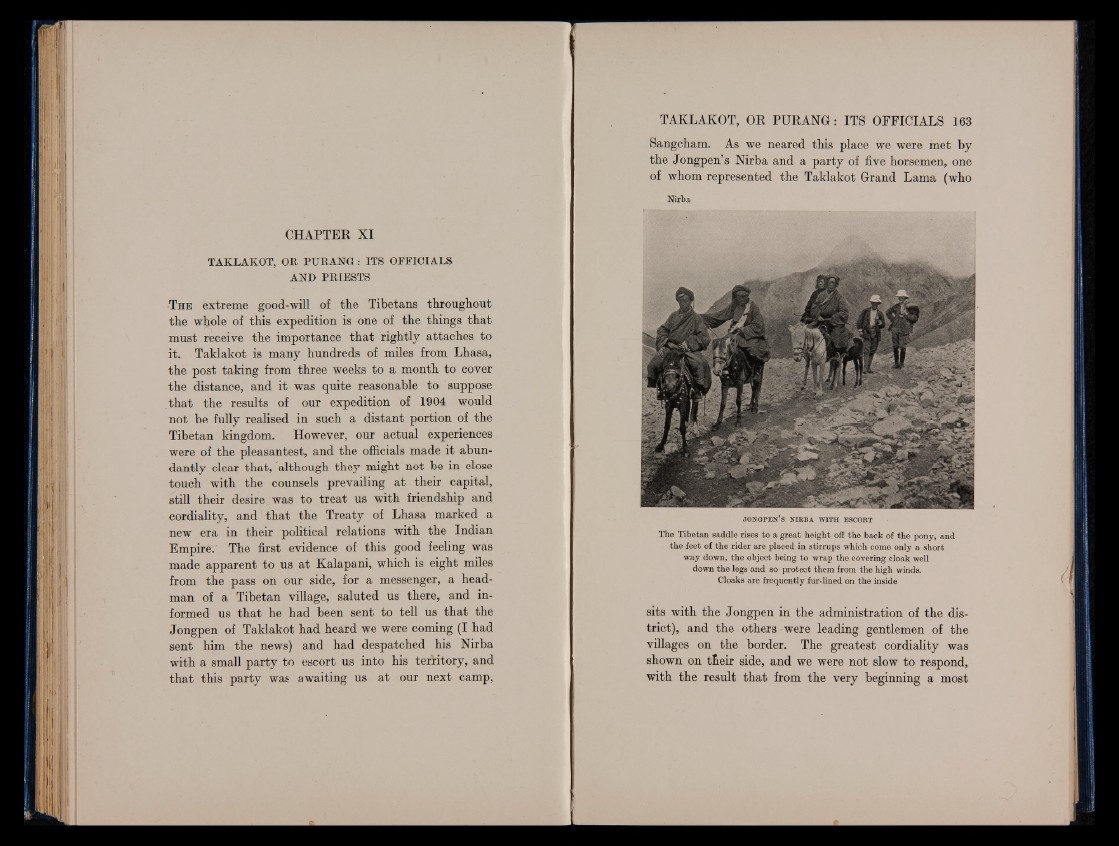
CHAPTER XI
TAKLAKOT, OR PURANG : ITS OFFICIALS
AND PRIESTS
T h e extreme good-will of the Tibetans throughout
the whole of this expedition is one of the things that
must receive the importance that rightly attaches to
it. Taklakot is many hundreds of miles from Lhasa,
the post taking from three weeks to a month to cover
the distance, and it was quite reasonable to suppose
that the results of our expedition of 1904 would
not be fully realised in such a distant portion of the
Tibetan kingdom. However, our actual experiences
were of the pleasantest, and the officials made it abundantly
clear that, although they might not be in close
touch with the counsels prevailing at their capital,
still their desire was to treat us with friendship and
cordiality, and that the Treaty of Lhasa marked a
new era in their political relations with the Indian
Empire. The first evidence of this good feeling was
made apparent to us at Kalapani, which is eight miles
from the pass on our side, for a messenger, a headman
of a Tibetan village, saluted us there, and informed
us that he had been sent to tell us that the
Jongpen of Taklakot had heard we were coming (I had
sent him the news) and had despatched his Nirba
with a small party to escort us into his territory, and
that this party was awaiting us at our next camp,
TAKLAKOT, OR PURANG: ITS OFFICIALS 163
Sangcham. As we neared this place we were met by
the Jongpen’s Nirba and a party of five horsemen, one
of whom represented the Taklakot Grand Lama (who
j o n g p e n ’s n i r b a w i t h e s c o r t
Nirba
The Tibetan saddle rises to a great height off the back of the pony, and
the feet of the rider are placed in stirrups which come only a short
way down, the object being to wrap the covering cloak well
down the legs and so protect them from the high winds.
Cloaks are frequently fur-lined on the inside
sits with the Jongpen in the administration of the district),
and the others were leading gentlemen of the
villages on the border. The greatest cordiality was
shown on their side, and we were not slow to respond,
with the result that from the very beginning a most